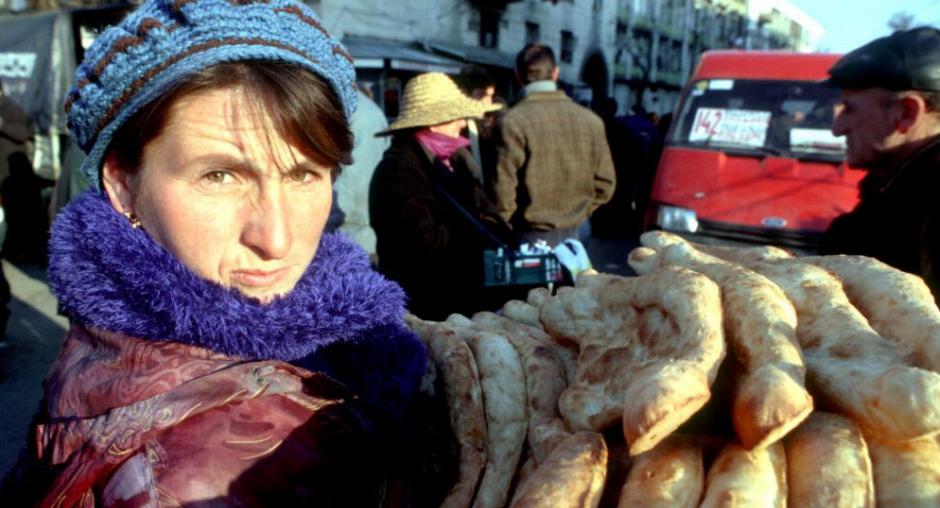Newsroom
More efforts needed by OSCE states to increase participation of women in public and economic life
WARSAW 13 May 2003

(OSCE)The exhibition "Images of women in southern Caucasus" by French photographer Eric Gourlan accompanies the OSCE conference on women and democracy. (OSCE) Photo details
WARSAW, 13 May 2003 - Participants of an international conference in Warsaw called on the OSCE and its participating States to reinforce efforts to ensure equal participation of women in public and economic life. The three-day meeting, which opened earlier today, is organized by the OSCE's human rights institution, the Warsaw-based Office for Democratic Institutions and Human Rights (ODIHR).
"Gender equality is inseparable from human rights and democracy," said Ambassador Christian Strohal, Director of the ODIHR, at the opening. "Unfortunately, we are still far from a satisfactory situation: women's representation in parliament, for example, has declined dramatically in some transition countries, and remains worryingly low in many other OSCE countries as well."
"Much needs to be done to ensure that women are better represented in political decision-making processes and economic life; too often action plans remain just plans and are not put into action," he added.
"Political participation of women is not just a political or social commitment, it is a legal obligation for which states can be held accountable," said Cornelis Flinterman, member of the UN committee overseeing the implementation of international standards on eliminating the discrimination of women, in a keynote speech.
More than 180 government representatives, international experts and activists from across the OSCE region are attending the meeting, which is expected to develop a set of concrete recommendations on what the 55 participating States of the OSCE can do to better implement their international commitments in the field of gender equality.
"Gender equality is inseparable from human rights and democracy," said Ambassador Christian Strohal, Director of the ODIHR, at the opening. "Unfortunately, we are still far from a satisfactory situation: women's representation in parliament, for example, has declined dramatically in some transition countries, and remains worryingly low in many other OSCE countries as well."
"Much needs to be done to ensure that women are better represented in political decision-making processes and economic life; too often action plans remain just plans and are not put into action," he added.
"Political participation of women is not just a political or social commitment, it is a legal obligation for which states can be held accountable," said Cornelis Flinterman, member of the UN committee overseeing the implementation of international standards on eliminating the discrimination of women, in a keynote speech.
More than 180 government representatives, international experts and activists from across the OSCE region are attending the meeting, which is expected to develop a set of concrete recommendations on what the 55 participating States of the OSCE can do to better implement their international commitments in the field of gender equality.
